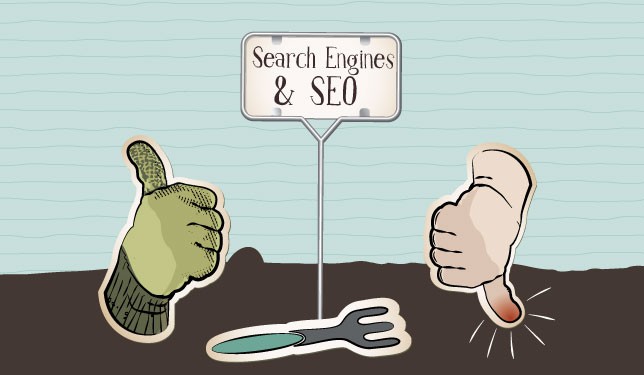Why Is SEO So Important? Inbound Marketing
Historically, websites were a line item in a standard marketing budget, directly beneath the all-important stationery and letterhead expenditures. Websites of yore functioned merely as online versions of the business’s brochure, showcasing basic contact information and listing services or products. Business websites used to be optional, and it was very common for businesses to just have a single web page without any additional links. But marketing has evolved!
Traditional “outbound marketing,” such as radio, TV and print advertising, are more easily being ignored by shoppers today due to technological advances. People are getting better at blocking out advertising “interruptions.” With the proliferation of paperless billing and email, mailboxes contain little mail that people actually want or need and, instead, are chock full of ads. The pile often goes straight from the mailbox into the recycling bin. I know mine does (with the important exception of pizza coupons!) With the advent of Netflix and TiVo, people easily skip over television commercials and previews. With caller ID, telemarketing is no longer as effective. With XM radio and iTunes, radio ads reach fewer people.
This phenomenon—along with other technical advances, social media, and the sheer abundance of information on the web—has spawned a gradual, but powerful, revolution in marketing. These days, shopping doesn’t start at the department store; it starts on the web. Shoppers have gone from being passive, semi-brainwashed “advertisees” to being hyper-informed buyers. This new variety of shopper spends time gathering information and reading blogs, turning to social media to ask peers for recommendations, and performing extensive online research using search engines before making decisions on how to spend their money.
According to ComScore, Americans conducted over 13 billion Google searches just in April. While some of these searches are devoted to discovering the latest adorable-kitten-playing-a-piano video, the vast majority of these queries are steps in a sales cycle that is happening almost entirely online.
Savvy businesses can reach these new age shoppers with “inbound marketing”. Inbound marketing refers to marketing activities that bring visitors in, rather than businesses having to go out to get the attention of potential customers. Businesses are pulling people into their sales funnel, rather than pushing them. Inbound marketing includes promoting your website and business through blogs, podcasts, video, eBooks, whitepapers, SEO, social media and other forms of “content marketing.”
Resource: For an even more thorough understanding of inbound marketing, visit www.hubspot.com/inbound-marketing.
A New World of Marketing
The specific keywords a person uses to search can reveal intentions. Think about the difference between the two searches “buy tulips” and “how to plant tulips.” One person is shopping, the other needs gardening tips.
Keywords can tell us what actions users are likely to take in that specific moment in time. In the past, this type of information was only attainable by expensive market research studies. By knowing what the user is looking for, businesses can create content that meets their needs, precisely at the moment that they need it. In order to take advantage of this new reality, businesses need to change the way they think about marketing.
Today, if your business doesn’t have a website, it might as well not exist to the millions of people using search engines to find products and services.
Your website should be the center of your marketing efforts, where you drive traffic by providing valuable content to your audience. The more remarkable your content, the more likely it will be seen.
With SEO, there is no magic bullet to get the coveted top rank on Google. You have to earn it! If you are willing to put in some serious sweat equity, you don’t need a big budget to see amazing results. (On second thought, if you’re getting really sweaty while optimizing your website, you might be doing something wrong).
But if you don’t have time to devote to your SEO, you will need to outsource the work, and this could be a significant ongoing investment. The amount of work or investment totally depends on how competitive your industry is and what keywords and locations you are targeting.
This new online “meritocracy” levels the playing field (at least a little bit) between large corporations and small businesses. Unlike many old school marketing strategies, SEO is not as simple as just investing a lot of money and getting immediate success.
More good news for small businesses is that free and inexpensive resources exist to help you on your SEO journey. Armed with a little knowledge, the right tools and good intentions, even the smallest businesses have what it takes to see SEO results. Follow our blog for more tips and tricks on SEO.
How have you seen marketing evolve in your industry in the past 15 years?



